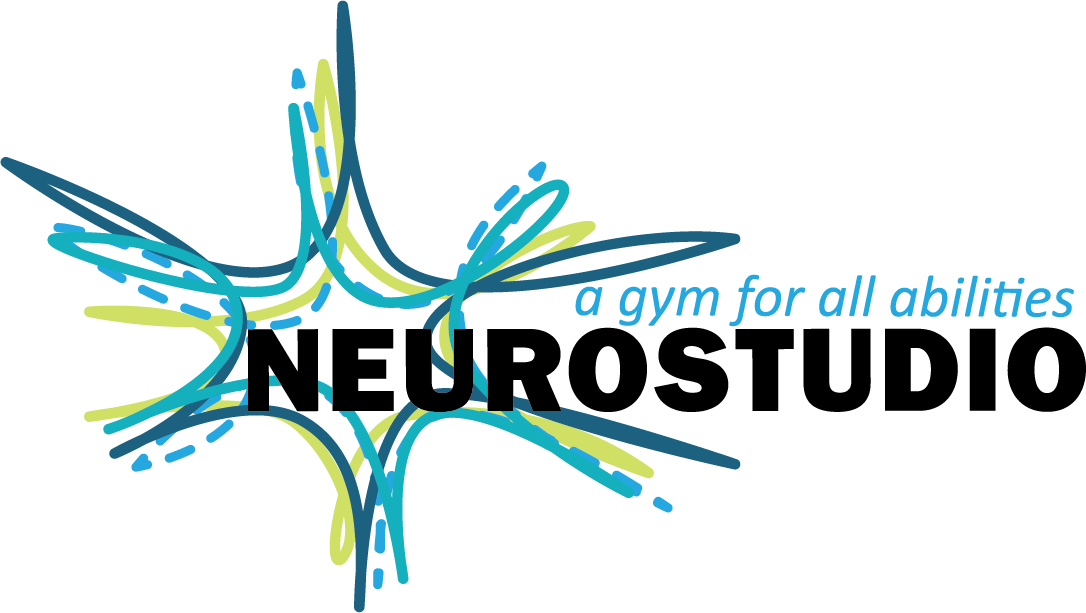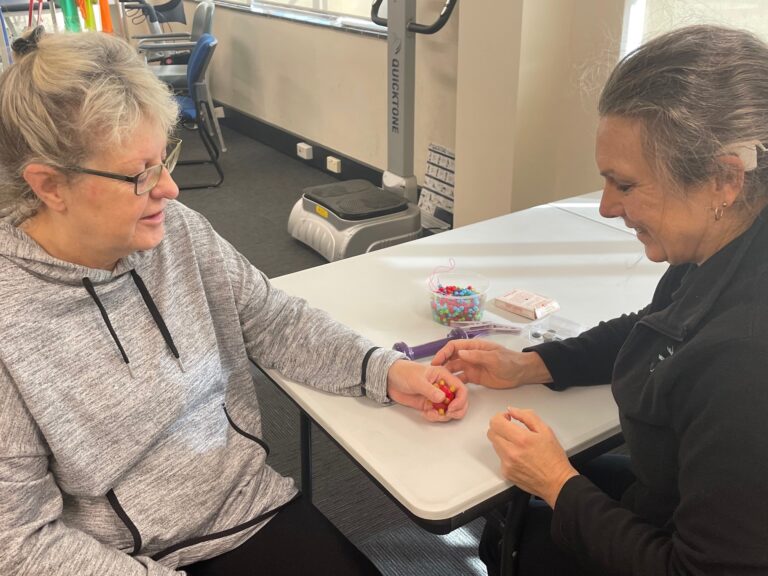
A period of illness or a recent diagnosis of a new condition may require some advice on what is the best exercise approach for you and have this supported over a period of time. In addition to the event that took you into hospital, there is likely to be accelerated deconditioning of any pre-existing injury or body weakness. All of these factors can be comprehensively evaluated, and programs designed with your goal focus. With all programs we seek to get you safe and independent and back in the community doing the things you most enjoy.
 There are two things to consider with prolonged hospitalisation :
There are two things to consider with prolonged hospitalisation :
A 2020 study in Melbourne, over 2 years found almost 10 % of patients had stays of greater than 14 days and used 44% of hospital bed days. The outcome for these people is generally poorer, including not getting home and increased demands on those at home. The factors that were a part of requiring long hospitalisation included factors such as age, current smoker, multiple health issues, and number of prior admissions in 12 months.
Getting fit for a planned hospitalisation is one way to help get out fast. Being as fit in general suggests that if you are inadvertently hospitalised, you’ve got better odds of reducing the time of hospitalisation, and will lower your risks of needing to be hospitalised.
The impact of patients gets greater as you age and the statistics are incredible.
“Prevalence estimates report older hospitalized patients can spend anything up to 95% of their time in bed or chair, during their hospitalization. The physiological effects of bed rest start to take place with-in the first 24 hours whilst some patients may still be in a trolley in the emergency department. Interventions such as intravenous infusion, catheterisation, bedrails, naso-gastric tube, etc. can further reduce mobility and progressively worsen the physiological deterioration. Data from the Acute Frailty Network (UK) suggests that impact of bed rest in first 24 hours includes reduced muscle power by 2-5% and reduced circulatory volume by up to 5%. Impact in the first 7 days includes reduced circulatory volume by up to 25%, reduced VO2 max by upto 8-15%, reduced muscle strength by up to 5-10%, reduced Functional Residual Capacity (FRC) by up to 15-30%, reduced skin integrity, reduced dignity, self-confidence, independence, choice and quality.” ( Amit Arora, 2019)
In addition to recovering from the cause of the hospitalisation, there are all the secondary impacts identified above. Restoring muscle strength, cardiovascular fitness and confidence to move again are vital aspects to getting back to being independent again.
A holistic assessment is critical to determine what to focus on and how to pace your recovery.
 Post covid-19 syndrome or ‘long covid’ is defined as symptoms that last for at least 2 months after initial diagnosis and cannot be explained by an alternative diagnosis (WHO, 2021). Common symptoms include fatigue, shortness of breath and cognitive dysfunction.
Post covid-19 syndrome or ‘long covid’ is defined as symptoms that last for at least 2 months after initial diagnosis and cannot be explained by an alternative diagnosis (WHO, 2021). Common symptoms include fatigue, shortness of breath and cognitive dysfunction.
At Neurospace, we are showing clear evidence of central neurological changes in some clients with long COVID symptoms. We are treating this as we would other mild brain injury with some great results.
Before recommencing a structured exercise program, it is important that an individual is professionally screened by an exercise physiologist to identify any red flags. Evidence suggests that individuals recommence exercise at a low intensity and reduced duration and monitor heart rate and dyspnoea (shortness of breath). In order to progress exercise intensity and duration, individuals must be able to complete exercise comfortably without an exacerbation of symptoms. It is also important to self monitor symptoms and to advise your health professional of any changes. Recent studies have found that individuals diagnosed with long covid that perform exercise gradually and safely have improved across various outcome measures and noted improvements in both physical and mental health.
 Type 1 Diabetes (T1DM)
Type 1 Diabetes (T1DM)
In Typ1 1 Diabetes the cells in the pancreas that produce insulin are destroyed by the body’s immune system. Without insulin the body’s cells cannot take up glucose (sugar) and turn it into energy. Glucose builds up in the blood stream and this can damage organs in the body such as the kidneys, heart and eyes. People with Type 1 Diabetes require daily insulin to control their glucose levels. About 10-15% of all cases of diabetes are Type 1 diabetics.
Type 2 Diabetes (T2DM)
Type 2 Diabetes is the more common form of diabetes, affecting 85-90% of all people with diabetes. While it usually affects older adults, worrying trends show us that more and more young people, even children, are developing Type 2 diabetes. In Type 2 Diabetes the pancreas produces insulin but the body’s cells do not respond effectively to the insulin (decreased insulin sensitivity) and so do not take up the blood glucose and turn it into energy. This results in a build-up of glucose in the blood.
The management of T2DM includes healthy eating, regular physical activity, and sometimes medication.
Diabetes is a complex condition that affects many parts of a person’s body. It can also impact on a person’s mental health. The potential complications of diabetes are the same for type 1 and type 2 diabetes.
Exercise and Diabetes
Physical activity is one of the best things you can do for your overall health.
Being physically active every day is important for people of all ages and has a positive impact on physical and mental wellbeing.
For a person with diabetes, exercise can help:
Our Exercise Physiologists can assist you to develop a plan around exercise that will help you to improve your diabetes management. It is important to be aware of how to safely exercise with Diabetes. Prior to exercising you should be feeling well and you should check your BGL’s. This helps you to know where your blood glucose levels are at and reduce your risk of having a hypoglycaemic episode. It is recommended that you participate in supervised exercise if you are just starting a new program of exercise.
 There are several life-threatening diseases that can affect the function of the heart. The most common of those are:
There are several life-threatening diseases that can affect the function of the heart. The most common of those are:
Chronic Heart Failure (CHF) – occurs when the heart no longer effectively pumps blood to the lungs and the rest of the body. The most common causes of CHF are heart attacks, high blood pressure and diabetes.
Coronary Heart Disease (CHD) – affects the blood flow of the coronary arteries around the heart which supply oxygen and nutrients to the heart muscle. CHD is typically caused by fatty deposit build up in the vessels.
Exercise can not only prevent development of cardiovascular disease, it can also help treat symptoms of a number of cardiovascular conditions.
Benefits of exercise for those with cardiovascular disease include:
Safety with exercise
TYPES OF EXERCISE RECOMMENDED
Patients with cardiovascular disease are encouraged to exercise, however their condition must be stable and it is recommended you get a doctors clearance before starting a program. It is recommended that around 150mins of moderate intensity aerobic exercise a week and 2-3 days of resistance exercises. Prior to starting a program it is important that you have an assessment to ensure that it is safe to begin exercise.
It is important that you have support from your team of medical and allied health professionals. Our Exercise Physiologists will be able to assess your physical function and assist you to build up an individualised program of aerobic and resistance exercises that will help you achieve your goals.
Research has shown that exercise is beneficial to reduce the risk of developing cancer. It also shows that it can improve treatment outcomes and can reduce the side effects of treatments. Treatments often can impact physical function and often people will become deconditioned over time. It is essential that exercise is performed during the treatment cycles but also as part of recovery.
Exercising during chemotherapy can help ease side effects, such as fatigue and nausea. It also helps to boost the immune system. The side effects of chemotherapy can make exercise very challenging but it is important to stay as active as possible.
Benefits of an appropriately prescribed exercise program for this population include improved:
It is important that you have support from your team of medical and allied health professionals. Our Exercise Physiologists will be able to assess your physical function, and assist you to build up an individualised program of aerobic and resistance exercises that will help you achieve your goals around treatment and recovery.

Spinal Cord Injury is any damage to the spinal cord from traumatic injury or disease. This results in diverse movement changes, from minor alterations in walking to total loss of arm and leg control and confinement to a wheelchair.
Neurospace can assist your journey beyond the initial hospital rehabilitation and welcome the opportunity to support this.
Our comprehensive assessment establishes your current abilities and goals. Therapy will work to maximise available muscle power, and improve movement control with a focus on central stability either in sitting or standing, to enhance all functional movements with the arms or legs. Substitution methods with equipment and alternative ways of moving are developed with you if needed.
Our programs are supported with equipment that can be used from a wheelchair, or with minimalised transfer requirements. We even have a treadmill and harness for partial weight bearing. The benefits of hydrotherapy are also enjoyed by our clients with Spinal Cord Injury.
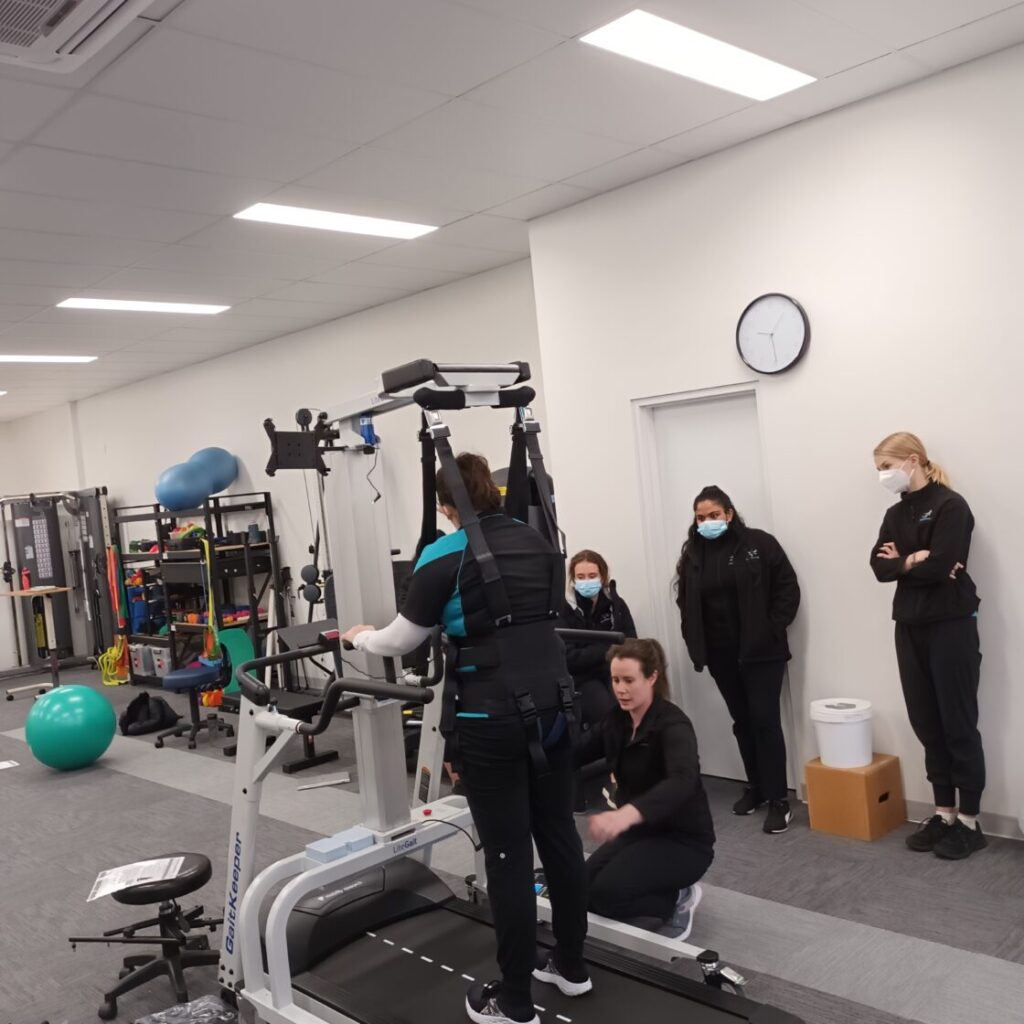
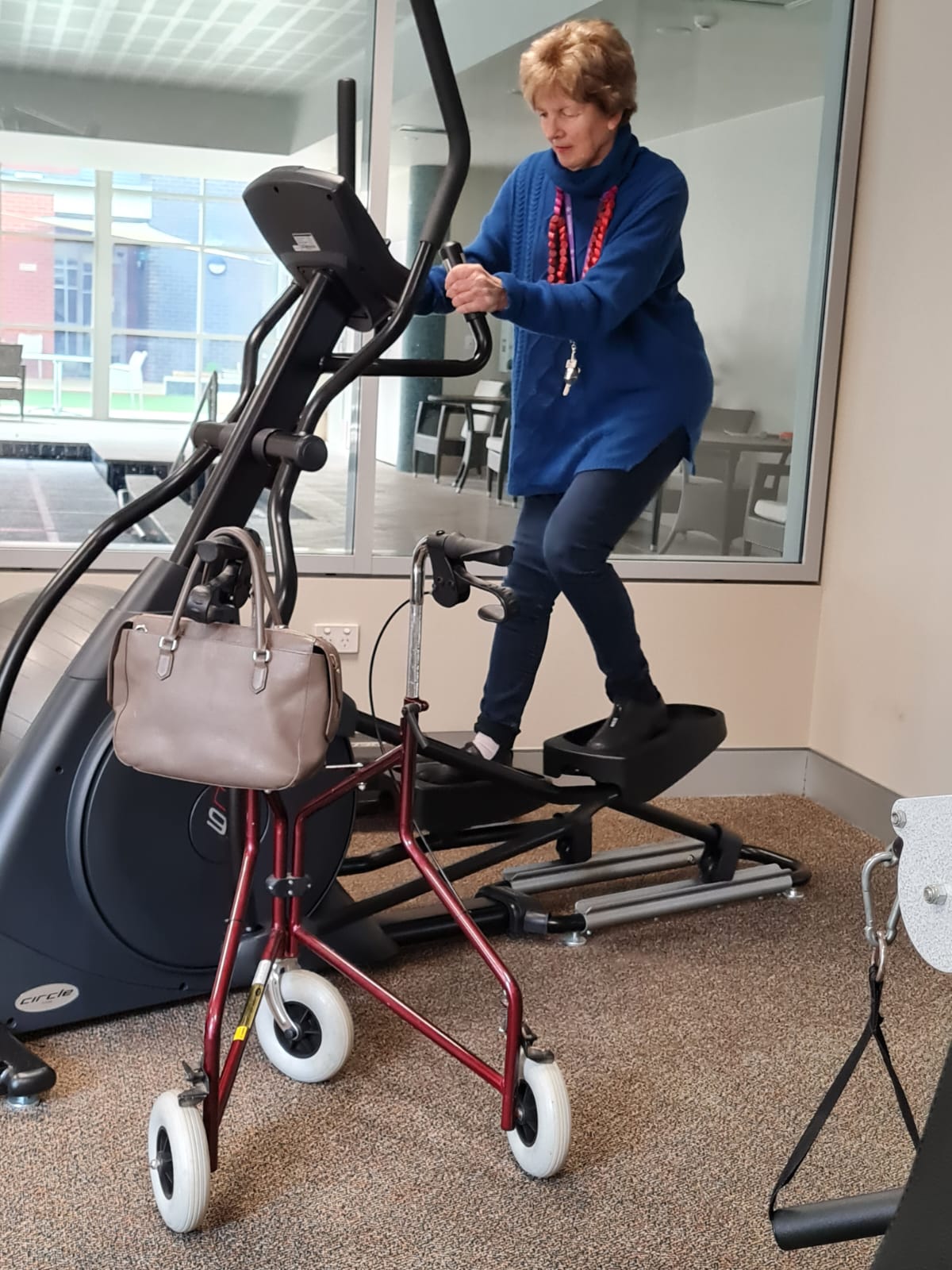
Functional Neurone Disease is where an alteration in voluntary movement control or normal sensation that cannot be explained by any medical diagnosis can have huge social implications. FND can be incredibly frustrating for the person with the disorder and their support people.
Physiotherapy and exercise play an important role in the management, and reversal of the symptoms. Our approach is to understand you, your personal situation and your goals. We assess any old issues that may be compounding your movement difficulties, your current abilities, and your overall neurological presentation.
In treatment, we seek to find ways to move and exercise that you can achieve comfortably with control and build up from there. We have found this is a difficult journey for you to make alone and considerable support is needed to make change. We are happy to liaise with your team of health professionals.
Dystonia refers to a movement disorder in which a person’s muscles contract uncontrollably. Symptoms of dystonia can range from very mild to severe. Dystonia can affect different body parts and will appear as abnormal repetitive movements or postures. For the person, this can cause incredible pain and fatigue.
The most common dystonia movements we manage at Neurospace are:-
We look to see what factors might be exacerbating the dystonia including where stress is place on body due to weakness or joint dysfunction (note these are also caused by the dystonia, so trying to find the start of the cycle and control it).
Dystonia is difficult to treat. Our strategy is to treat the underlying impairments (reduced strength, balance, range of motion etc) and to build up normal movement patterns. Treatment is aimed at getting a good base, and then reducing the dystonic movements and reducing the secondary effects of the abnormal movement. This needs to be graded slowly and within your capabilities, without the triggers.
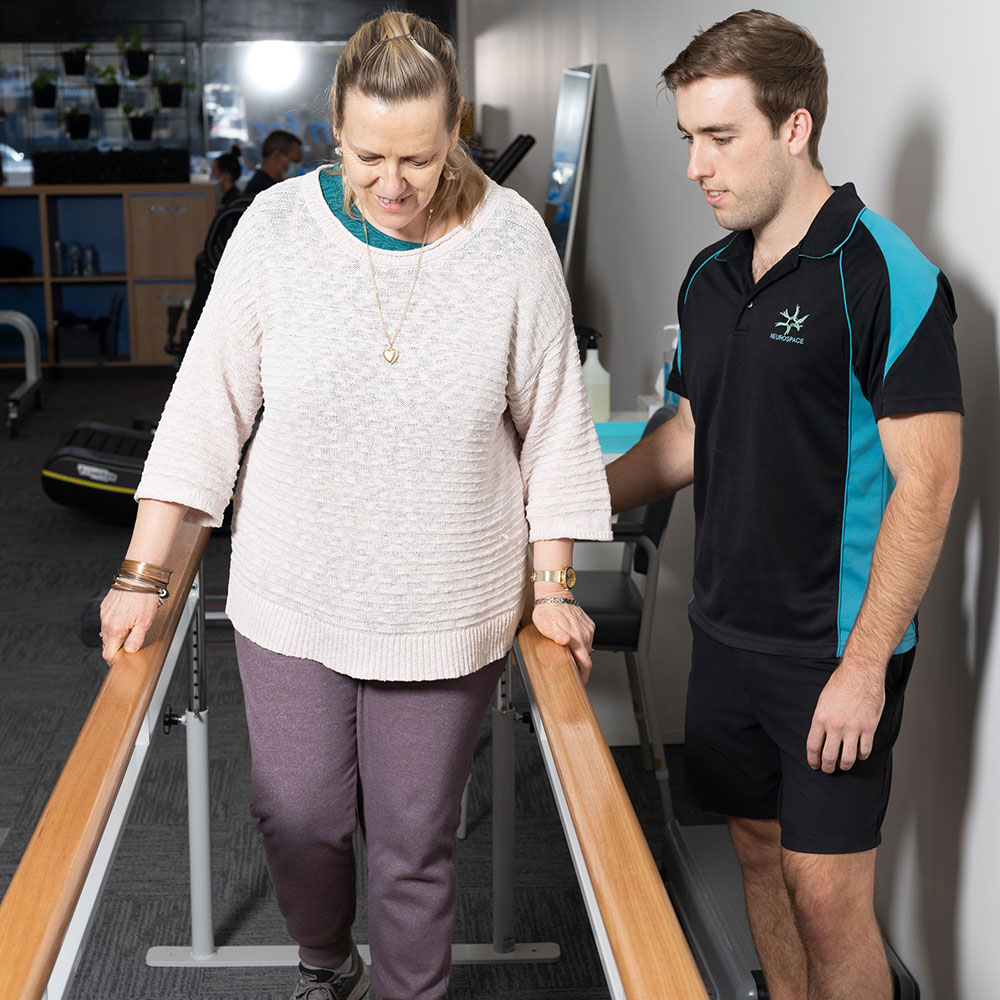
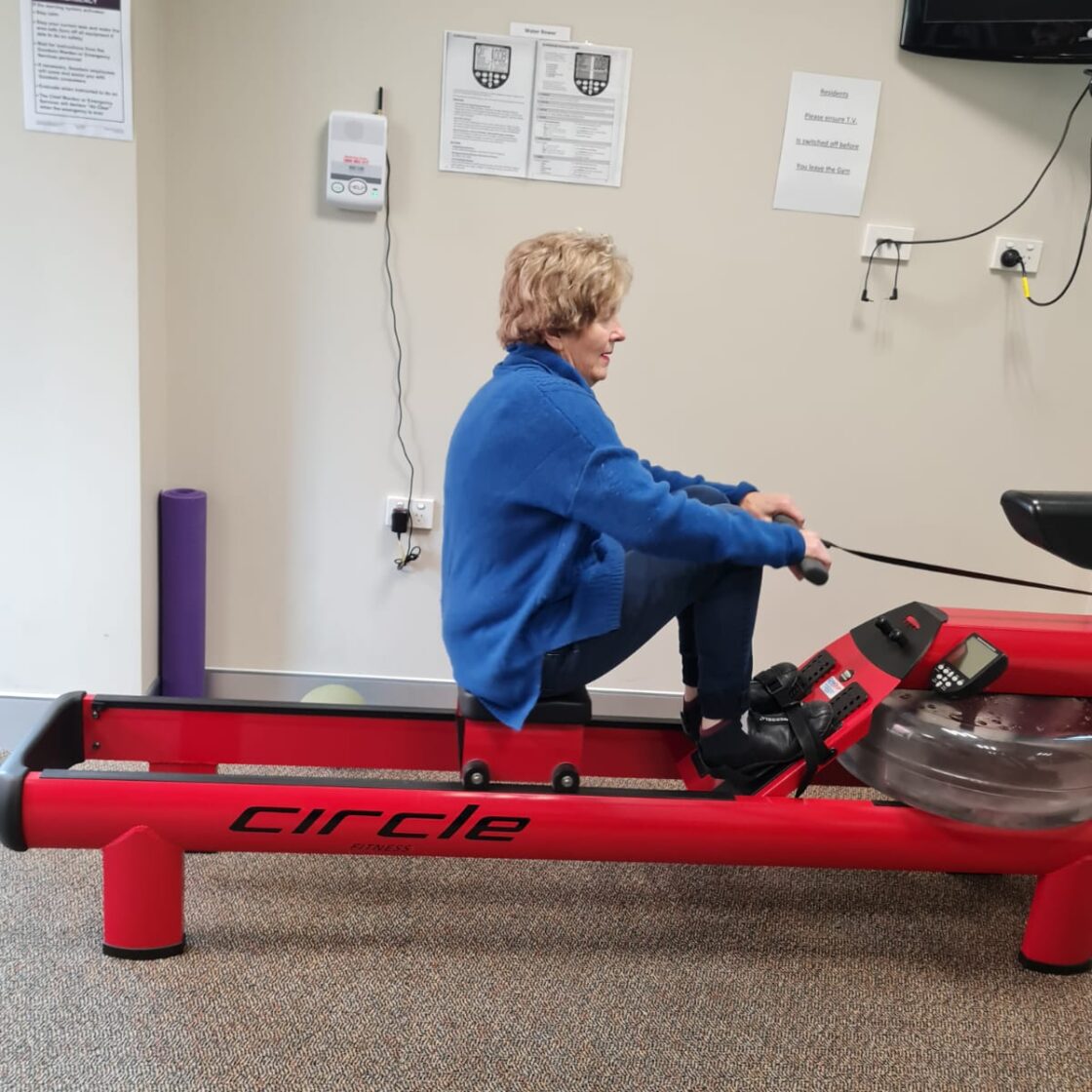
Ageing brings changes to every body system. And it starts to happen noticeably after turning 50 – which is when we may have already substantially slowed down with desk jobs, raising families, injuries or other health issues. This can be negated by maintaining a healthy lifestyle approach to movement, exercise and food intake.
A part of this is addressing quickly any injuries that occur along the life journey and having regular tune ups to check the body parts in good shape (just like the car!).
Balance deterioration occurs with changes in any sensory system (the feeling in our feet, joints, eyes, ears) and weakness in any part of the body, particularly the legs and trunk. Subtle changes turn into big changes as the body cleverly substitutes and adapts. We seek to catch those changes early, and keep you on track, to have a healthy active life.
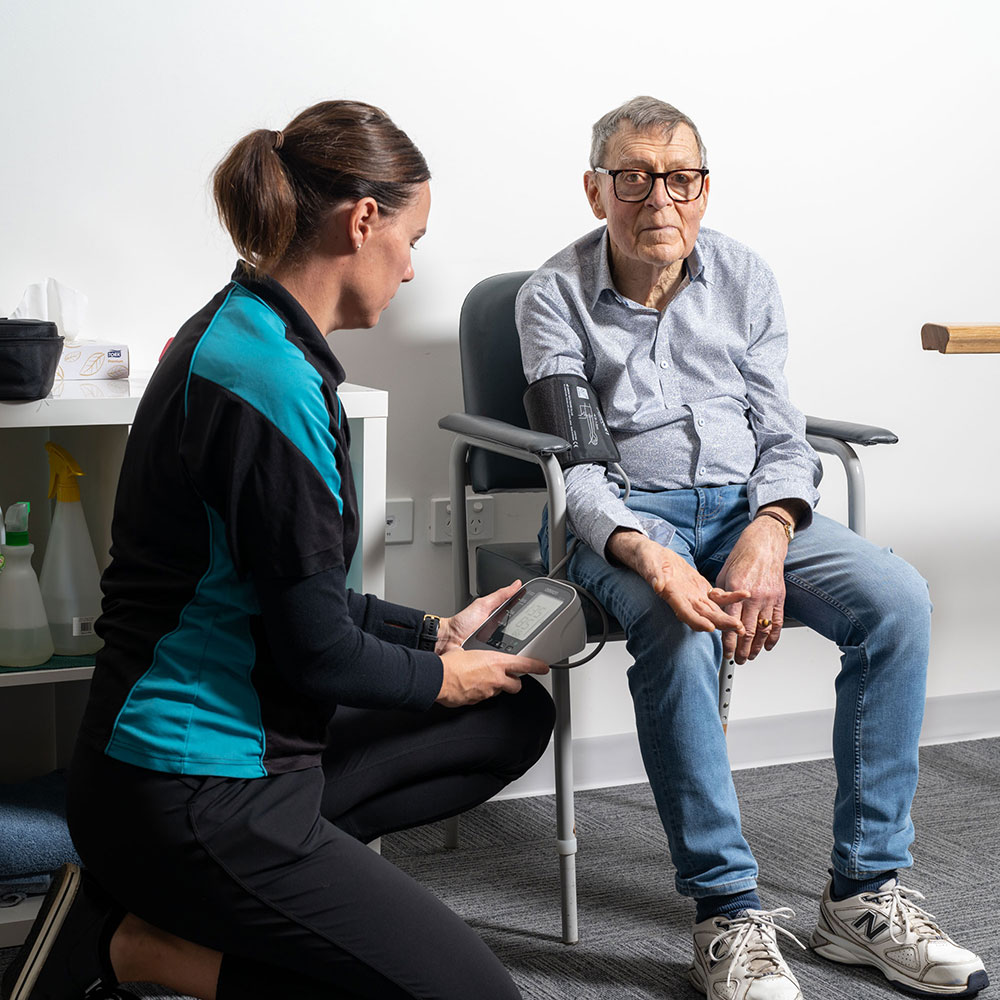
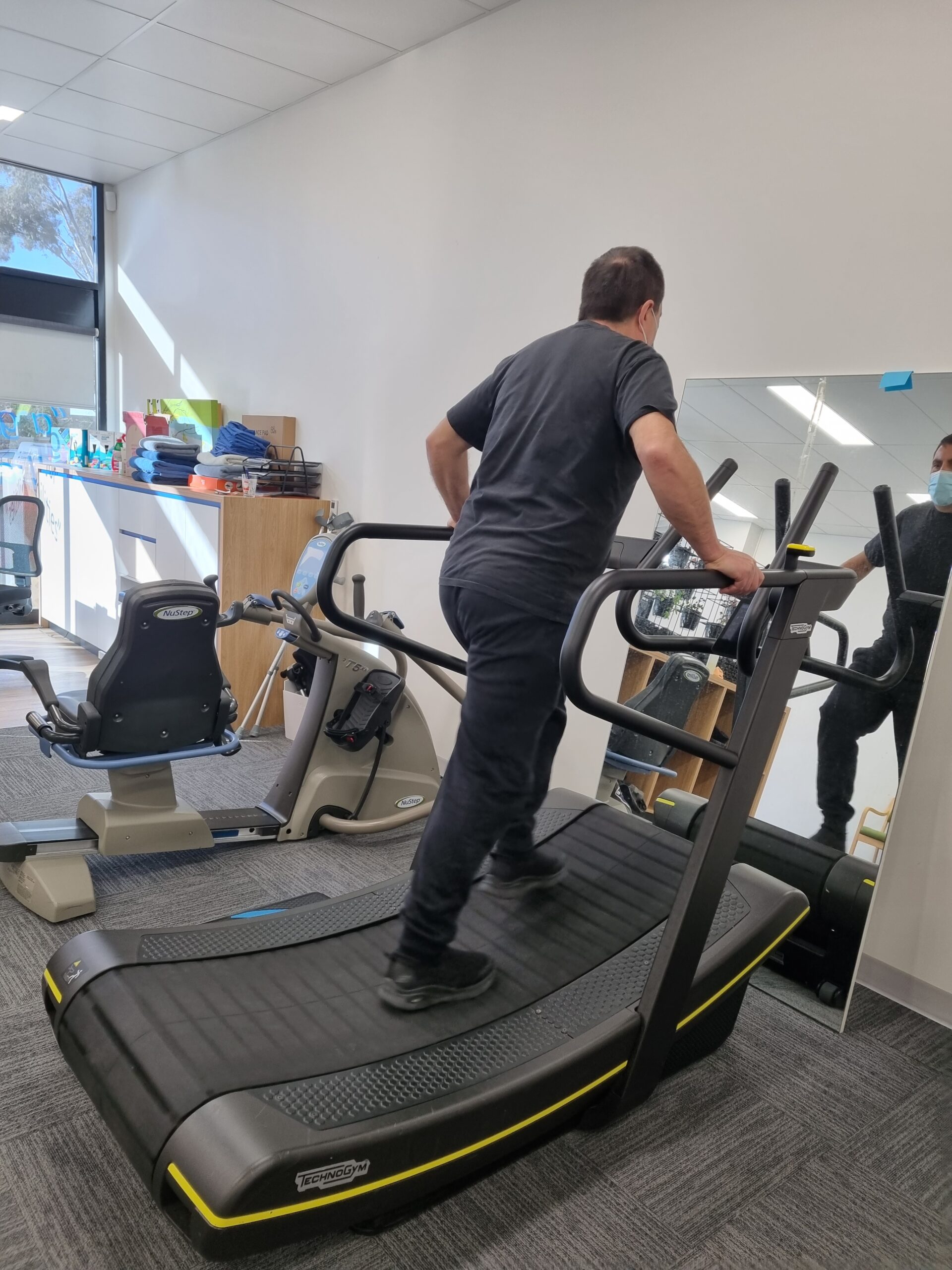
Our Neurospace training and experience in assessing and treating clients holistically gives us a good basis for the treatment and management of people living with complex presentations. This may include someone living with multiple diagnoses, or someone with multiple ongoing issues after a significant accident. For example, someone living with a TBI but also having sustained multiple areas of trauma on top of the head injury or had multiple co-morbidities prior to their accident.
Our team is experienced and confident in managing complex clients safely and effectively to exercise and reach their goals.
Neurospace Clinic: 8-5 Mon, Wed, Fri 8-6 Tue, Thu
NeuroStudio: 8-5 Mon 8-5:30 Tue, Wed, Thu 7:30-4:30 Fri
Yes we provide services for people with an insurance claim for their injury. We are often chosen to help solve complex or long standing cases. To be eligible to claim on your insurance, we require the following:
We need to get preapproval for the initial assessment before the first consultation and defined number of sessions.
Please note that all claims are subject to approval by the insurance company. If the insurer or Comcare does not agree to Neurospace’s full fees then you are required to pay the gap and seek direct reimbursement from the insurer. For example, the insurance company may only pay for a 20 minute consult when Neurospace treats standardly for a minimum of 30 minutes.
Neurospace is a registered provider with the National Disability Insurance Scheme, the NDIS. We offer services in Physiotherapy, Exercise Physiology and allied health assistant.
If you have a plan already in place, please call to discuss how Neurospace can work with you to reach your goals. If you are still in the planning stages, we can also discuss what services are available in the community that may be of benefit to you.
As a registered provider, we can bill directly to the NDIS for your services or you can chose to self-manage your plan or have someone manage your plan for you. We also work closely with other providers to provide you with the best care.
We offer services as home visits, community visits ( somewhere not your home) and at the pool. There is an additional charge for these due to the extra time required to travel to a home or care facility. Please contact us to discuss external visits in greater detail.
We offer telehealth using a range of ‘video’ communications to assess and manage you online. Our telehealth charges are the same as if you were in the rooms.
Physiotherapists and Exercise Physiologists work together, complementing each other’s work. Everyone can benefit from a physiotherapy or exercise physiology session of a comprehensive movement / fitness check up. Often we are not aware that something is changing in our bodies until pain and reduced function scream out at us to get in checked. You do not need a doctors referral to seek an answer from us, and if you need a doctor we will refer you on with a detailed letter.
The physiotherapy and exercise physiology we offer at Neurospace is particularly targeted at long standing and difficult problems. We place emphasis on clients gaining quality of life and meaning from our therapy. See our Fit to Retire package to get a start on making a difference in your quality of life.
Neurospace has a special interest in helping people with movement problems due to damage to the nervous and/or sensory systems. Our approach has been developed by a lifetime of work by our principal therapist Deborah Carrera and there is systematic training approach to ensure all the team understand this. We apply a holistic approach that seek to assess the underlying impairments and understand how these impact the way you move. We develop and progress the treatment plan addressing both the impairments and retraining the way you move.
In addition, we apply this holistic approach to issues such as joint pain, sporting injuries , and post surgery rehabilitation. We like to think we can help anyone, but if we don’t think we are the right place for you , we let you know and refer you onto a place that can help you.
Principal physio with 38 years rehabilitation experience
Our Home Visits and telehealth options make treatment more convenient
Purpose-build rehab studio with specialised equipment
As a long standing NDIS registered provider, we take the confusion out of claiming and help you maximise your benefits*
Free parking and easy accessibility
Excellent professional staff and service, very friendly and supportive. Highly recommend.
Jackie Neill
I have been going to Neurospace Physiotherapy for the last two weeks and I am so happy with the service that they have been able to provide to me. The staff are incredibly welcoming and helpful and they have been able to help me immensely. I highly recommend this service!
Ally Gould
Best physio to go to, the staff are helpful and caring.
Sammy Rose




